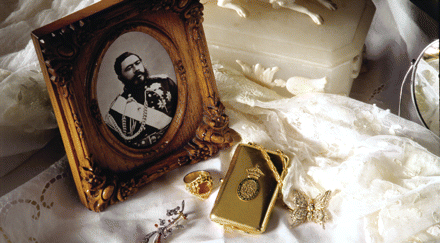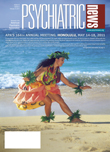Imagine that your canoe has just landed on an island in the Pacific Ocean, some 2,000 miles from where you started—the Marquesas Islands. Palms sway in the northeast trade winds; sand glistens in the tropical sunlight. You are the first Polynesian to set foot on a cluster of islands that will be called, many centuries later, Hawaii.
No one knows for sure when the Polynesian people first came to Hawaii. But it looks as if it was at least as early as A.D. 700, because a bone fishhook found at the southernmost tip of the largest island in the Hawaiian chain—Hawaii, also known as the Big Island—has been carbon-dated to that time. In any event, by 1300, the Polynesians were settling the Hawaiian islands in earnest. They built temples, fishponds, and aqueducts. Each island was a separate kingdom. High priests asked the gods for guidance; ritual human sacrifices were common.
In 1810, the islands were united under a single ruler, King Kamehameha I. In 1819, his son Kamehameha II succeeded him and eliminated many ancient rituals— for instance, that commoners had to prostrate themselves when a chief approached and that women had to eat separately from men—and ordered the end of the traditional Hawaiian religion.
In 1823, missionaries from New England started arriving in Hawaii, intent on converting the natives to Christianity. As Hawaii's Queen Liliuokalani would write some years later, "My great grand-aunt was the celebrated Queen Kapiolani, one of the first converts to Christianity. She plucked the sacred berries from the borders of the volcano, descended to the boiling lava, and there, while singing Christian hymns, threw them into the lake of fire. This was the act that broke forever the power of Pele, the fire goddess, over the hearts of her people...."
King Kamehameha III moved the capital of his kingdom to Honolulu in 1845. In 1875, a treaty between the Kingdom of Hawaii and the United States allowed for the duty-free importation of Hawaiian sugar into the United States, and in exchange, Hawaii ceded Pearl Harbor, on the island of Oahu, to the United States. In 1882, the kingdom's royal residence, Iolani Palace, was built on Oahu by King David Kalakaua.
In 1893, Hawaii's monarchy came to an end when a group of American sugar planters, descendants of missionaries to Hawaii, and the U.S. marines imprisoned Queen Liliuokalani in Iolani Palace. In 1898, Hawaii was annexed to the United States.
During the 20th century, American influence increased in Hawaii. In 1900, Hawaii became a U.S. territory. In 1927, the first nonstop plane flight took place between the mainland United States and Hawaii. On December 7, 1941, the Japanese bombed American warships based at Pearl Harbor, thus prompting the United States to enter World War II. In 1959, Hawaii became the 50th state of the union.
Today, Hawaii is economically vigorous and a leader in research and development in oceanography, geophysics, astronomy, satellite communications, and biomedicine. Hawaii is also a major tourist mecca. In 2000, it drew almost 7 million visitors. Its tourist rolls will undoubtedly swell even more this coming spring, as thousands of psychiatrists and their families arrive for APA's annual meeting.
"In 1959, my father, the Rev. Abraham Akaka, was chaplain of the then Territorial Legislature," Jeffrey Akaka, M.D., the first Native Hawaiian to become speaker of the APA Assembly, told Psychiatric News. "When Hawaii received the news of statehood, amid firecrackers and ringing bells, he led our elected government officials from their chambers across the street to the Kawaiaha'o Church to ask God's blessing. In his sermon, he urged that the new state of Hawaii be guided by ‘aloha’—the desire to promote the good of other people out of a sense of kinship and with no conditions attached.... It is from his words that day that Hawaii is now known as the Aloha State."
Akaka added: "During the APA annual meeting in Honolulu, we Hawaiians will attempt to share our spirit of aloha with each of you. You will then hopefully be able to take aloha home to share with your families, your communities, and your patients."

